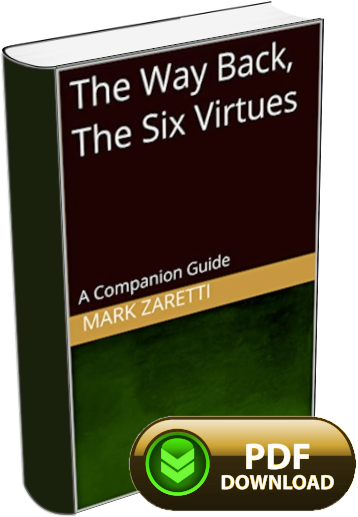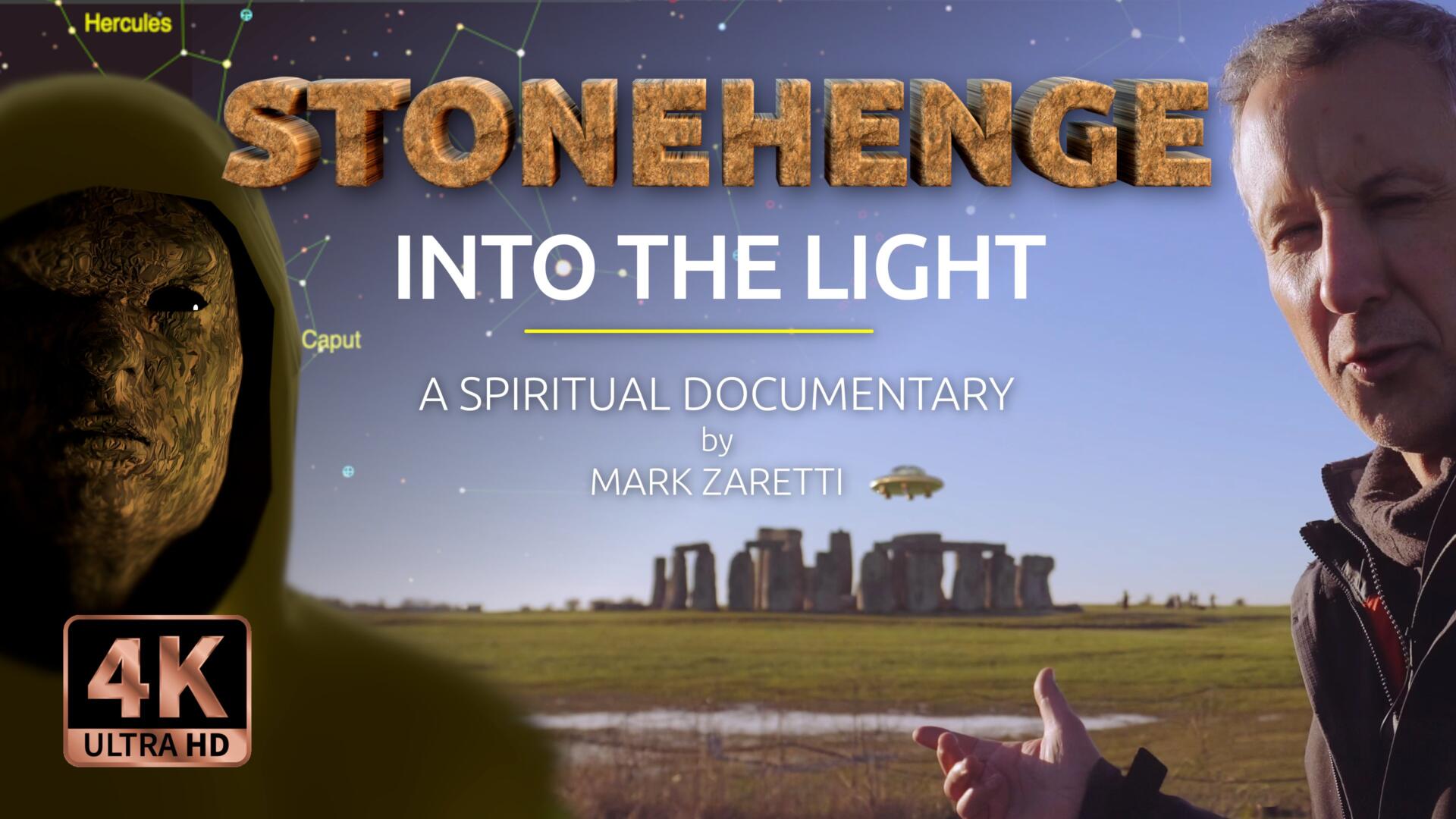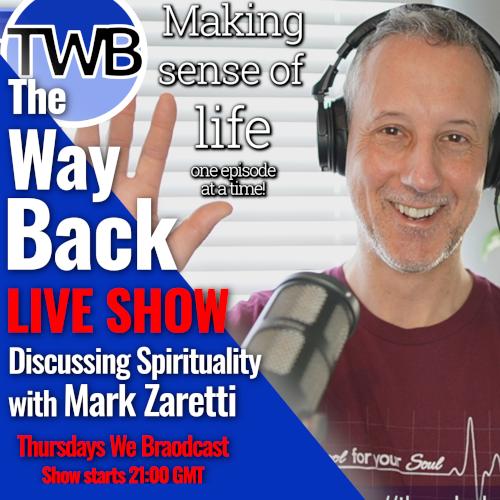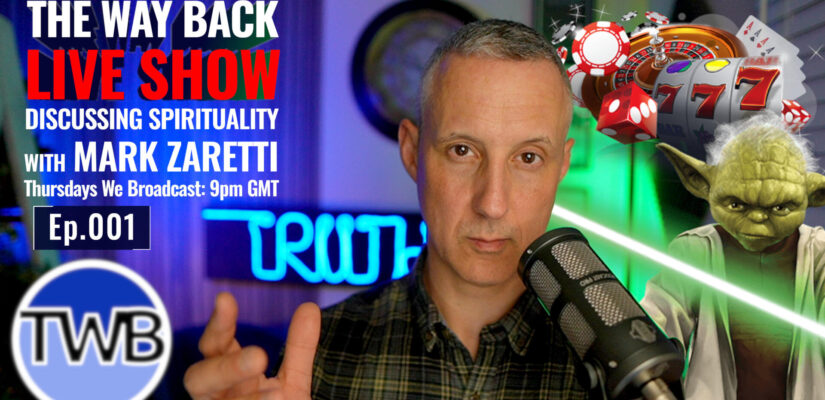
Ep.001 Introductions, Spirituality, Beliefs, Parental responsibility: Live Show Discussing Spirituality with Mark Zaretti
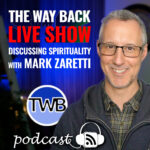
This is the first episode and in it I cover the following topics:
- My background and how I came to be writing and teaching spirituality.
- What spirituality really is and how each of us may be spiritual
- How I was inspired by films like Star Wars and how they encode some spiritual ideals.
- The anecdote of the spiritual gambler.
- Why being a parent is such a spiritual responsibility and why your child chose you.
Thank you for listening to this show. If you’d like more spiritual content then check out “The Way Back to Spiritual Awakening” podcast and visit TheWayBackGroup.org where you’ll find loads of free resources to help you get the most from your spiritual journey. Check out my books and films. – Mark
Author : Mark Zaretti
Mark is one of the founder members of The Way Back, an author of several books about spirituality and has written a number of articles on meditation. Mark started practising meditation in 1981 and has been teaching professionally since the late 1990's. He is passionate about helping people realise their spiritual potential. Mark hosts the live interactive Q&A show "Discussing Spirituality with Mark Zaretti" every Thursday 21:00 GMT on Rumble.com.
